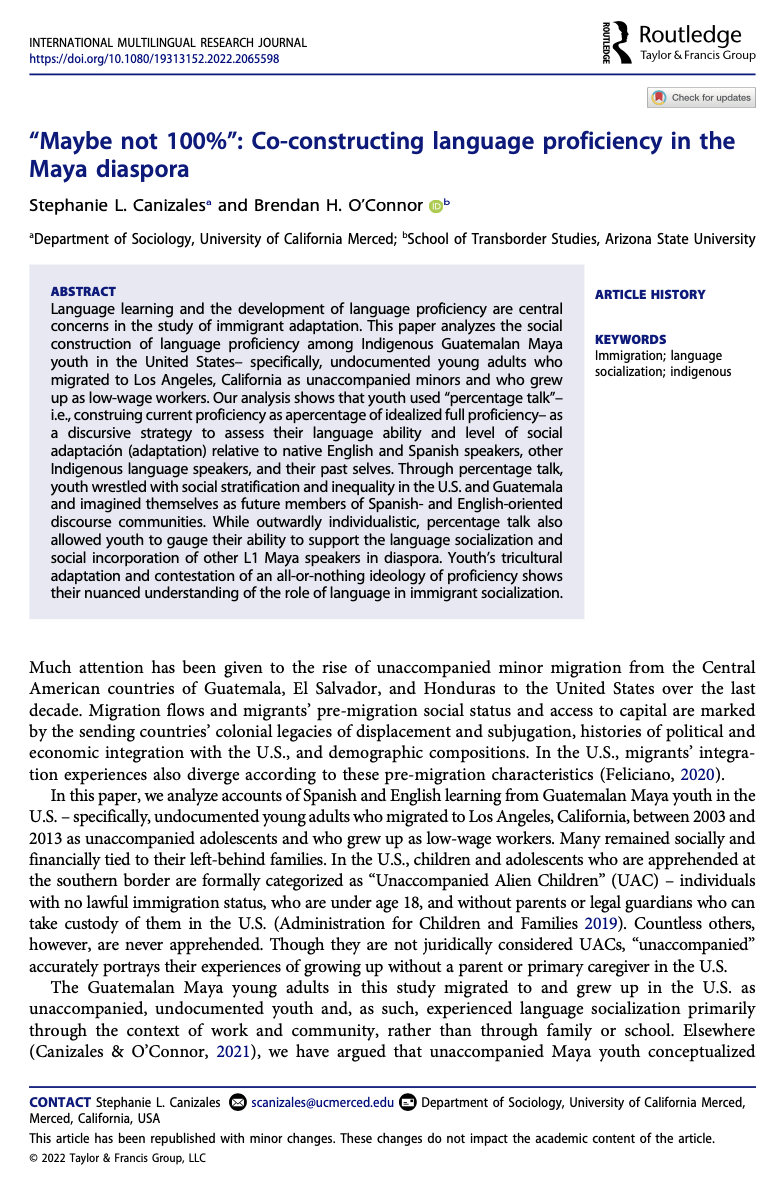
Language Socialization Among Maya-speaking Guatemalan Youth Workers in Los Angeles
"Scholars acknowledge that Indigenous Latinx immigrants' complex process of adapting to life in the United States, or incorporation, differs from that of their non-Indigenous counterparts." The article "Maybe not 100%":Co-constructing language proficiency in the Maya Diaspora examines how unaccompanied, undocumented, Maya-speaking Guatemalan youths navigate language in the U.S.

Access paper here